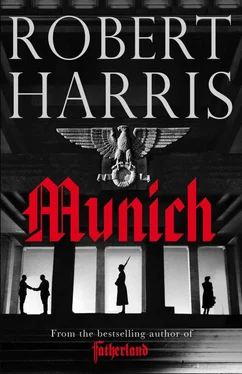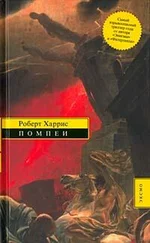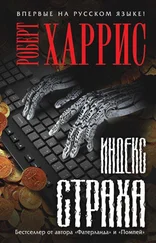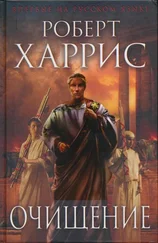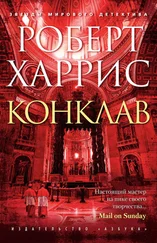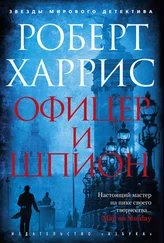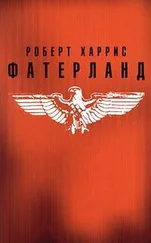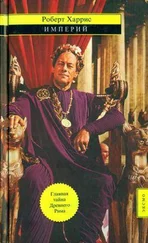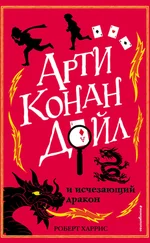After the Chiefs of Staff had gone, Chamberlain let out a long sigh and rested his head in his hand. Glancing sideways, he seemed to notice Legat for the first time. ‘Were you making a note of all of that?’
‘Yes, Prime Minister.’
‘Destroy it.’
In Wilhelmstrasse, in the heart of the government sector of Berlin, in the sprawling three-storey nineteenth-century building that housed the German Foreign Ministry, Paul von Hartmann was contemplating a telegram that had come in overnight from London.
CONFIDENTIAL
LONDON 26 SEPTEMBER 1938
IN THE NAME OF OUR OLD FRIENDSHIP AND OUR COMMON DESIRE FOR PEACE BETWEEN OUR PEOPLES I DO URGE YOUR EXCELLENCY TO USE YOUR INFLUENCE TO POSTPONE THE DECISIVE MOVEMENT OF OCTOBER FIRST TO A LATER DATE THAT TIME MAY BE GIVEN TO ALLAY PRESENT PASSIONS AND PROVIDE OPPORTUNITIES FOR REACHING ADJUSTMENT OF DETAILS
ROTHERMERE FOURTEEN STRATTON HOUSE PICCADILLY LONDON
Hartmann lit a cigarette and considered what sort of response was required. In the seven months since Ribbentrop had taken over as Foreign Minister he had been called upon many times to translate incoming messages from English into German and then to draft replies in the Minister’s name. At first he had adopted the traditional, formal, neutral tone of a professional diplomat. But many of these early efforts had been rejected as insufficiently National Socialist; some had even been returned to him by SS-Sturmbannführer Sauer of Ribbentrop’s staff, with a thick black line scrawled through them. He had been forced to recognise that if his career was to prosper a certain adjustment of style would be necessary. Gradually therefore he had trained himself to mimic the Minister’s bombastic manner and radical world view, and it was in this spirit that he set to work answering the owner of the Daily Mail, his pen scraping and stabbing at the paper as he worked himself into a state of faux-outrage. His concluding paragraph in particular struck him as masterly:
The idea that because of the Sudeten problem, which is completely secondary to England, peace might be destroyed between our two peoples, seems to me madness and a crime against humanity. Germany has pursued an honest policy of understanding with England. It desires peace and friendship with England. But when foreign Bolshevist influences have come to the fore in English politics, Germany must be prepared for every eventuality. The responsibility before the world for such a crime would not fall to Germany — as you, my dear Lord Rothermere, know better than anyone.
He blew on the ink. Really, with Ribbentrop one could not lay it on too thick.
Hartmann lit another cigarette. He started again from the beginning, making small corrections here and there, squinting at the paper through his smoke. His eyes were a striking shade of violet, and slightly hooded. His forehead was high; his hairline, even at the age of twenty-nine, had already receded almost to his crown. His mouth was wide and voluptuous, his nose strong — it was a mobile and expressive face: compelling, unusual, almost ugly. And yet his genius was for making men and women love him.
He was about to place his draft in the basket to be sent to the typists when he heard a noise. Or perhaps it would be more accurate to say that he felt a noise. It seemed to travel through the soles of his shoes and up the legs of his chair. The pages in his hands shook. The rumble intensified, became a roar, and for a ludicrous moment he wondered if the city was experiencing an earthquake. But then his ear picked out the distinctive note of heavy engines revving and the clank of metal tracks. The two men with whom he shared the office, von Nostitz and von Rantzau, glanced at one another and frowned. They got to their feet and went over to the window. Hartmann joined them.
A column of drab, olive-green armoured vehicles was trundling south down Wilhelmstrasse from the direction of the Unter den Linden — artillery half-tracks, Panzers on the backs of tank-transporters, heavy guns towed by trucks and by teams of horses. Hartmann craned his neck. It went on for as far as he could see: a full motorised division to judge by the length of it.
Von Nostitz, who was older than Hartmann and one grade higher, said, ‘My God, is it already starting?’
Hartmann went back to his desk, picked up his telephone and dialled an extension. He had to cover his left ear with his hand to shut out the noise. A metallic voice at the other end said: ‘Kordt.’
‘It’s Paul. What’s happening?’
‘Meet me downstairs.’ Kordt rang off.
Hartmann took his hat from the stand. Von Nostitz said mockingly, ‘Are you going to join up?’
‘No, obviously I’m going outside to cheer our gallant Wehrmacht.’
He hurried along the high gloomy corridor, down the central staircase and through the double doors. A short flight of steps, blue-carpeted in the centre and flanked by a pair of stone sphinxes, led to the entrance hall. To Hartmann’s surprise the lobby was deserted, even though the air itself seemed to be vibrating with the noise from outside. Kordt joined him a minute later, his briefcase wedged under his arm. He had taken off his spectacles and was breathing on the lenses, polishing them on the thick end of his tie. Together they went out into the street.
Only a handful of Foreign Ministry staff had gathered on the pavement to watch. Across the road, of course, it was a different story: in the Propaganda Ministry they were practically hanging out of the windows. The sky was overcast, yearning to rain — Hartmann felt a drop of moisture on his cheek. Kordt took him by the arm and together they walked in the same direction as the column. A score of red-white-and-black swastika banners hung motionless above their heads. They gave the grey stone facade of the Ministry a festive air. But it was striking how few people were lingering on the street. Nobody was waving or cheering; mostly they had their heads down, or were staring fixedly ahead. Hartmann wondered what had gone wrong. Normally the Party stage-managed these things much better.
Kordt had yet to speak. The Rhinelander was taking quick, nervous steps. About two-thirds of the way down the length of the building he steered them into an unused entrance. The heavy wooden door was permanently barred; the porch offered privacy from prying eyes. Not that there was much to see: just the head of the Foreign Minister’s Private Office — a harmless, bespectacled, clerkish figure — and a tall young Legationsekretär , holding an impromptu meeting.
Kordt clasped his briefcase to his chest, undid the catch and drew out a typewritten document. He gave it to Hartmann. Six pages, typed in the extra-large characters the Führer preferred, to spare his far-seeing eyes whenever he had to deal with bureaucratic trivia. It was an account of his meeting that morning with Sir Horace Wilson, written up by the Foreign Ministry’s chief interpreter, Dr Schmidt. Couched in the blandest official language, Hartmann could nevertheless visualise what it described as vividly as if it were a scene in a novel.
The obsequious Wilson had congratulated the Führer on the warm reception of his speech at the Sportpalast the previous evening (as if anything else was possible), had thanked him for his kind references to Prime Minister Chamberlain, and at one point had asked the others present — Ribbentrop, together with Ambassador Henderson and First Secretary Kirkpatrick of the British Embassy — to step out of the room briefly so that he could assure Hitler in private, man to man, that London would continue to put pressure on the Czechs. (Schmidt had even recorded his words in his original English: I will still try to make those Czechos sensible. ) But none of that could disguise the central fact of the encounter: that Wilson had had the temerity to read out a prepared statement declaring that in the event of hostilities the British would support the French, and had then asked the Führer to repeat back what he had just told him, to be sure there was no misunderstanding! Little wonder Hitler had lost his temper and told Wilson he didn’t care what the French or British did, that he had spent billions preparing for war, and if war was what they wanted, then war was what they would get.
Читать дальше
